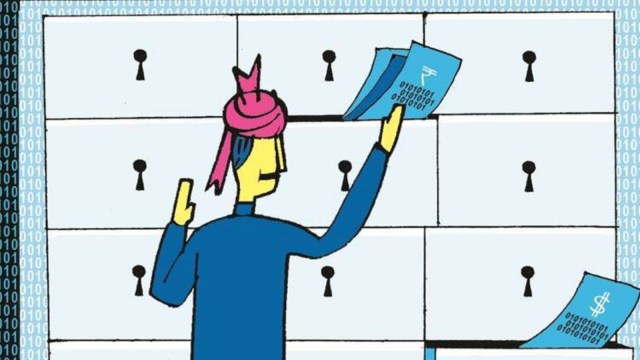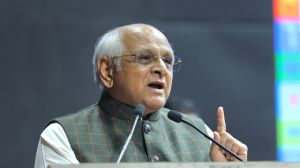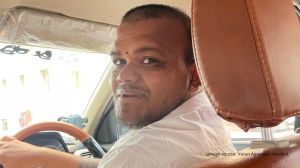Maratha quota survey | Tech woes to community backlash: Data collectors face several obstacles to record info
The Indian Express spoke to several community health workers and teachers who highlighted challenges, which began with the unavailability of smartphones among many of them and no financial support from the government to buy internet services necessary to fill data through the app.
 Enumerators complained that in several instances, the OTP required to log in didn't generate. "The training was so hasty that older women couldn't learn. They don't even know how to use the OTP to log in," said advocate Prakash Devdas, president of the Mahapalika Aarogya-Seva Karmachari Sanghatan.
Enumerators complained that in several instances, the OTP required to log in didn't generate. "The training was so hasty that older women couldn't learn. They don't even know how to use the OTP to log in," said advocate Prakash Devdas, president of the Mahapalika Aarogya-Seva Karmachari Sanghatan.
Days after the Maratha reservation survey commenced, enumerators appointed for the job were riddled with challenges. As data collection work began with an exhaustive list of 154 questions, the number of challenges faced by enumerators was just as lengthy. Obstacles ranged from technical glitches such as struggles with the mobile app being used to record data, internet connectivity and required expenses to language barriers and discomfort in asking some of the questions. They also faced backlash from communities in isolated areas.
The mandatory survey by the Maharashtra State Backward Commission, that commenced on Tuesday, aims to determine the Maratha community’s eligibility as a backward class. The survey covers the Maratha community and the open category and will be completed by January 31. More than 1.25 lakh government employees were deployed for work as enumerators which include teachers and community health workers.
The Indian Express spoke to several community health workers and teachers who highlighted challenges, which began with the unavailability of smartphones among many of them and no financial support from the government to buy internet services necessary to fill data through the app.
A community health volunteer from Borivali said, “After posing these 154 questions, interviewees need to sign at the end. However, due to network issues on our phones, the process often halts. Once it halts, we must restart the entire process again. We recharge our phones for daily usage, but not for such demanding work which weak networks can’t do.”
The problem exacerbated in slums where weak networks prevented volunteers from detecting longitudes and latitudes of the area, essential for individual registration. Without this, the process can’t be commenced. Once information is submitted, requests for modifications or resubmission are not accepted, which according to some of the enumerators raised questions on the accuracy of the data.
Maharashtra Rajya Prathamik Shikshak Samiti, a state-wide primary teachers’ organisation complained that teachers were threatened with consequences if the collected information was inaccurate. “It is inappropriate to put the entire blame on those who are collecting data. The individuals giving information from each household are required to sign the form before submission. They can verify the details,” said the organisation’s state head, Vijay Kombe.
Enumerators complained that in several instances, the OTP required to log in didn’t generate. “The training was so hasty that older women couldn’t learn. They don’t even know how to use the OTP to log in,” said advocate Prakash Devdas, president of the Mahapalika Aarogya-Seva Karmachari Sanghatan.
Enumerators without smartphones or with low RAM on their devices were advised to manage by borrowing from a relative or purchasing one for the survey. “I earn only Rs 12,000 per month, which covers my sons’ education and tuition fees. How can they expect me to invest Rs 5,000 to Rs 8,000 in a smartphone with high RAM?” said a Parel volunteer.
A teacher from Nagpur said, “We are given meagre compensation for the task, which does not cover the internet expense, forcing us to spend out of our pockets.”
Enumerators alleged ambiguity regarding the source of the promised compensation. The Sanghatan has also submitted a letter to the corporation, alleging that they were initially promised Rs10,000 for enumeration work and Rs 500 for training. However, during training, the promised Rs 500 was suddenly denied to them. The Sanghatan also submitted a letter to the corporation on this. “They have been ordered to buy mobiles, power banks with their own money, which is labour exploitation. Also, the corporation doesn’t have any idea who will pay them the money and how much,” said Devdas. He also noted discomfort in asking specific questions about women, like their choice of attire, leading to relying on observational answers.
Enumerators were also compelled to record information from other communities during their door-to-door survey which involved a basic one-page questionnaire, but residents often objected to giving information.







